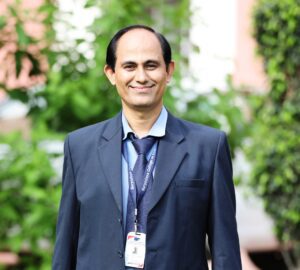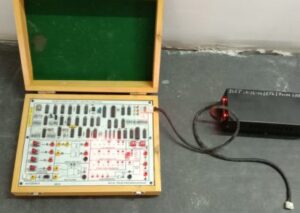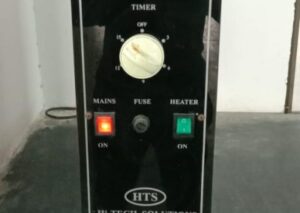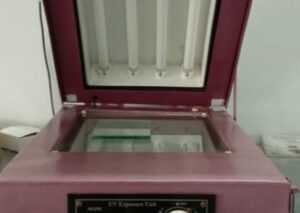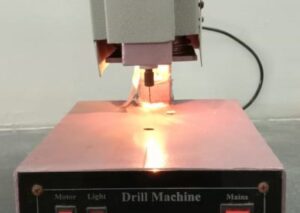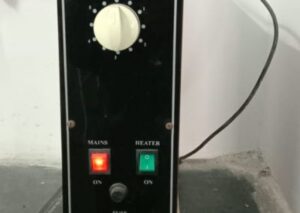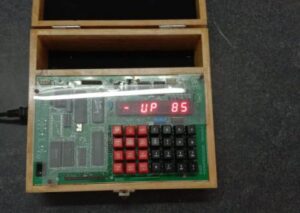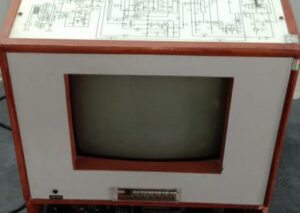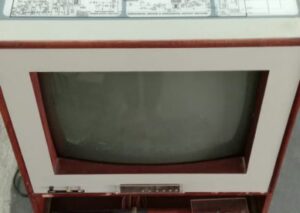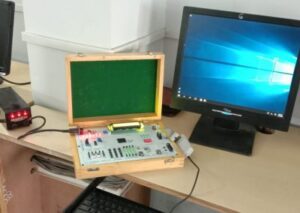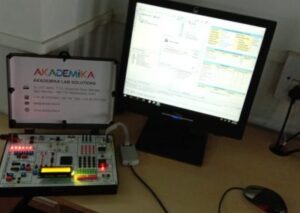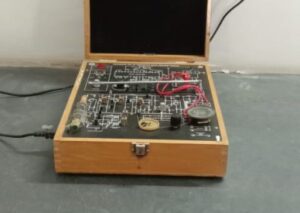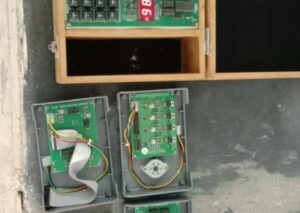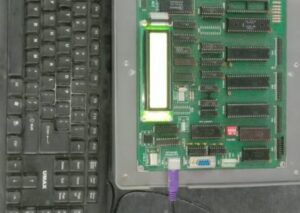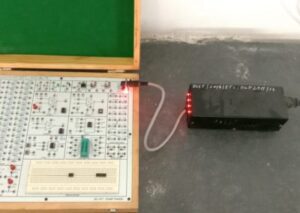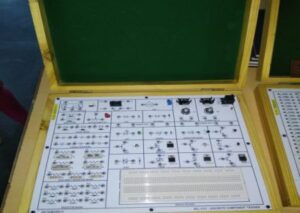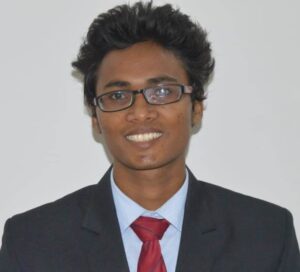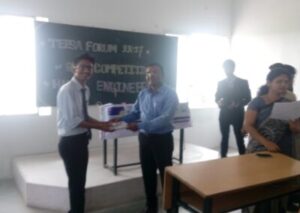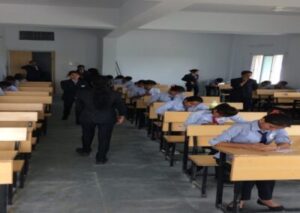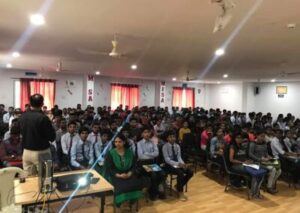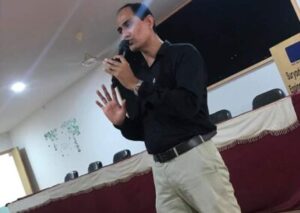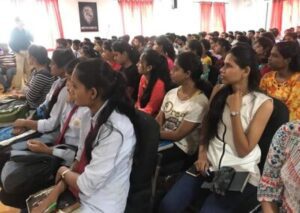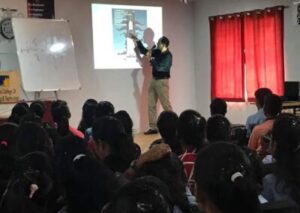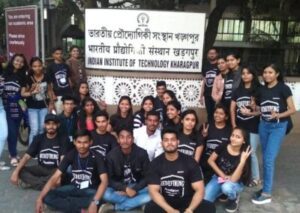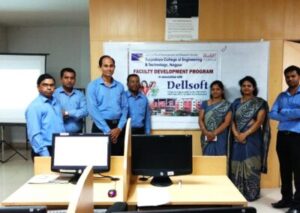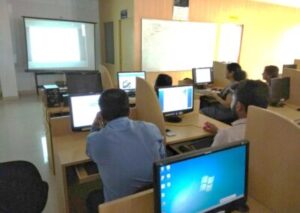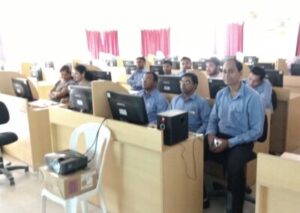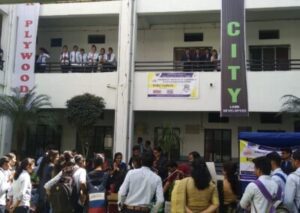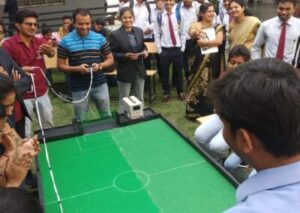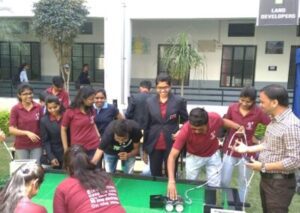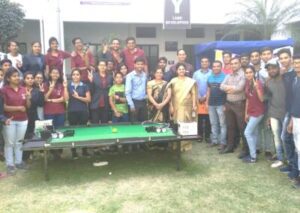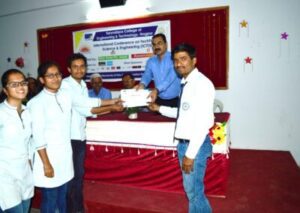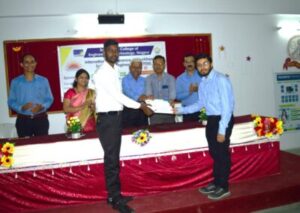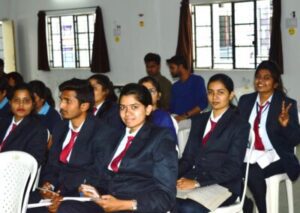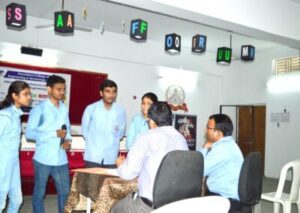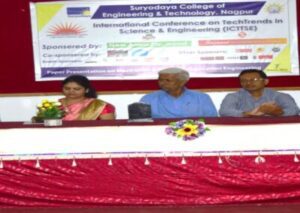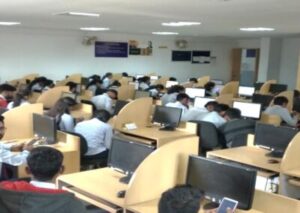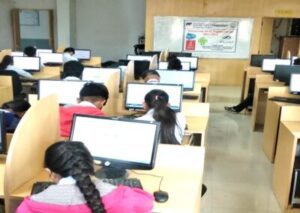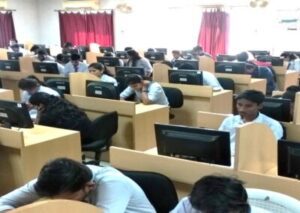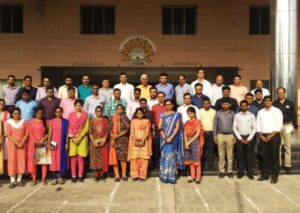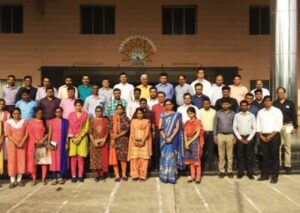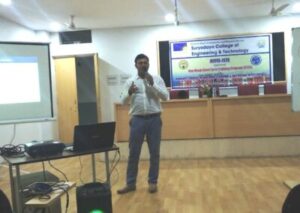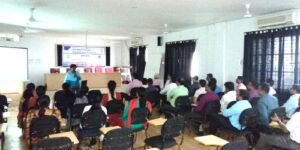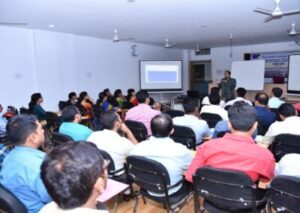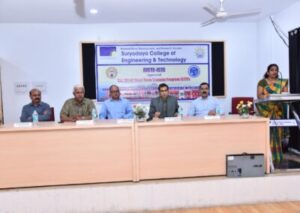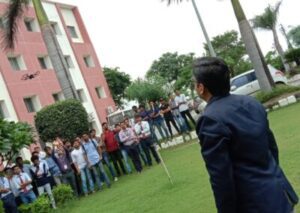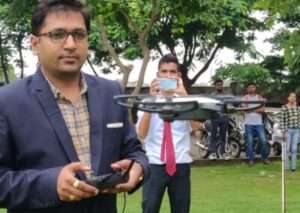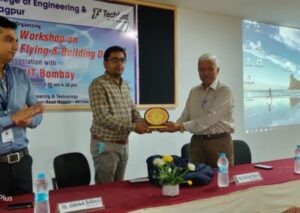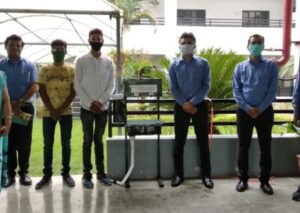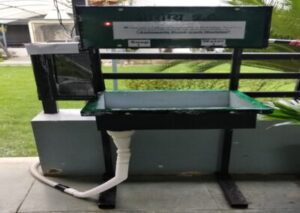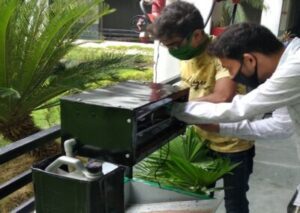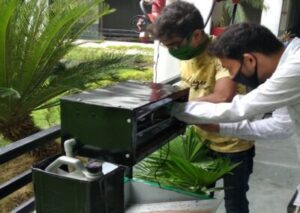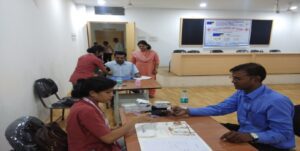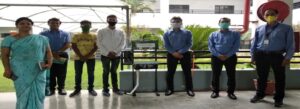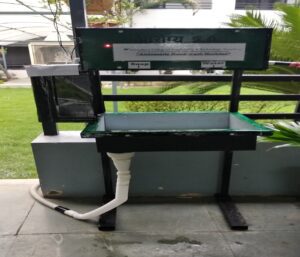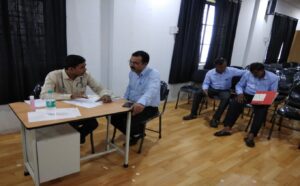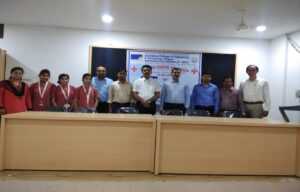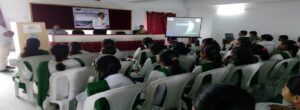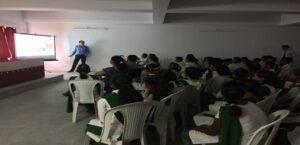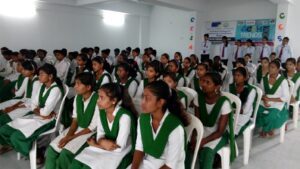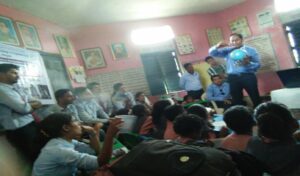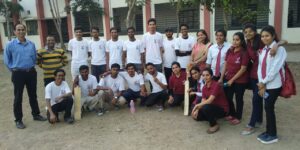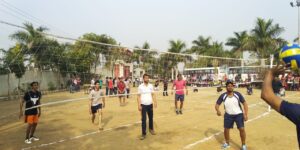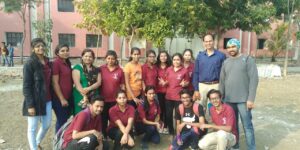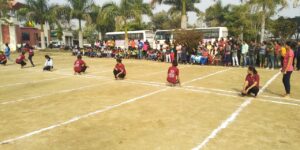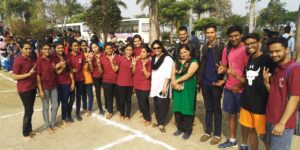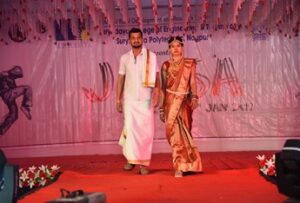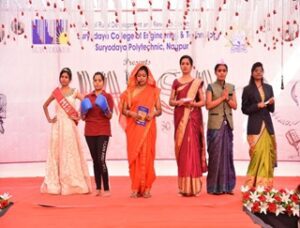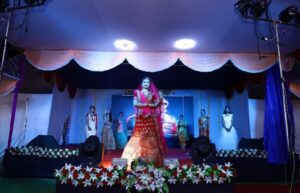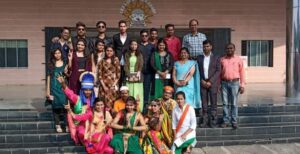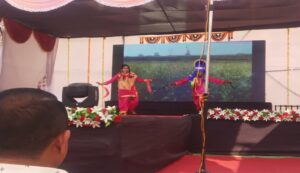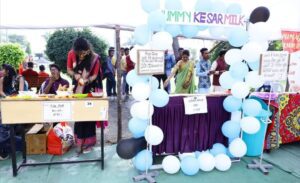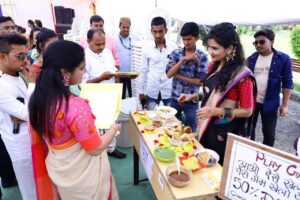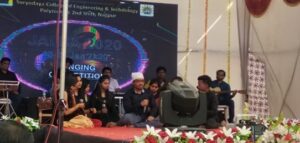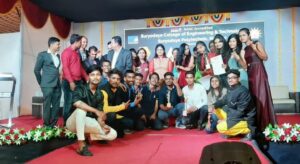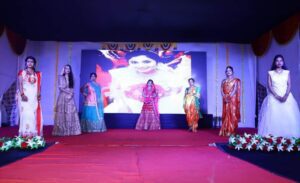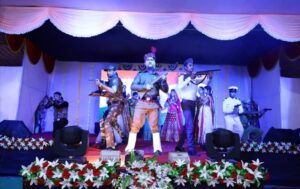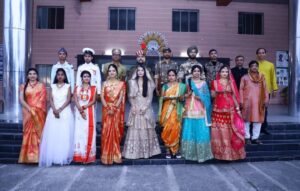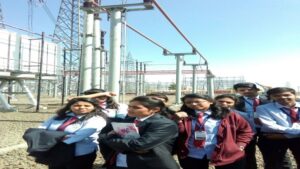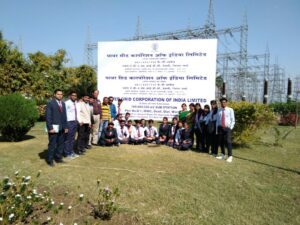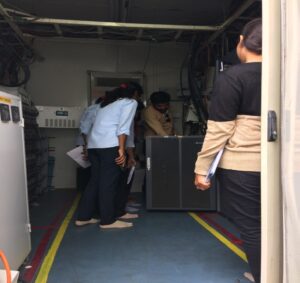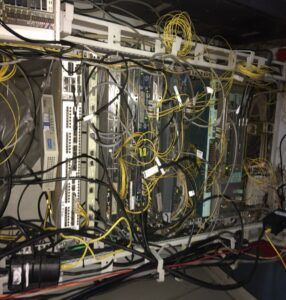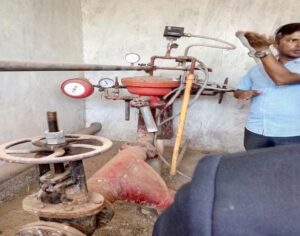MR. SHAILESH GAJANAN BIRTHARIYA
Asst. Professor & Head of the Department
Area of Research / Specialization : Digital Communication
Qualification : M-Tech
Experience : 15 Years
Publications : 12
ABOUT : DEPARTMENT OF ELECTRONICS & TELECOMMUNICATION ENGINEERING
Electronics and Telecommunication engineering is one of the most popular engineering branches out there. Among the Indian engineering aspirants, this particular discipline has been a popular choice for quite some time. With the evolution of the computer age, electronics & tele-communication has transformed into a field that is inevitable, required by almost all the industries. Electronics is now part of our everyday life, from the mobile phones to televisions, computers and even the high-end advanced satellites that are helping us to lead a smooth life. Even electronics and telecommunication engineering is the major driving force for the present day Information Technology revolution.
Electronics and Telecommunication Engineering has also penetrated into other areas like healthcare, instrumentation, automation, remote sensing, signal processing etc. So students pursuing electronics and communication engineering have a lot of scope in varied industries.
“Electronics and Telecommunication Engineering” is one of the highest emergent fields of engineering courses. It involves the broadcast of information across the channel. Electronics and Telecommunication Engineering (ETC) compiles in Tele-Communication Engineering and core Electronics Engineering. The course idea is to focus largely on the communication part with the understanding of the electronics field.
“Electronics and Telecommunication Engineering deals with the electronic devices and software applications. It is an interface of chip level hardware and information technology”.
VISION OF THE DEPARTMENT:
“To impart Quality technical education through quality teaching, carrying out research & technology development in electronics to provide valuable resources for industry and society.”
MISSION OF THE DEPARTMENT:
“To produce world class electronics professionals who possess strong theoretical foundation, good design experience and exposure to research by imparting knowledge & skill based Education with Industry Collaboration that helps them to face challenges at global level.”
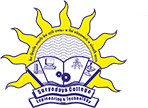

B.E. Third Semester
| Course Name : Applied Mathematics-III |
| Code : BEETE301T |
| At the end of course Students will be able to – |
|
CO1
|
Analyse Integral Transform techniques such as Laplace
transform and apply Laplace Transform to solve Ordinary Differential Equations.
|
|
CO2
|
Apply Fourier Transform to Solve Integral Equation. |
|
CO3
|
Calculate the maxima and minima value for functions of two variables. |
|
CO4
|
Apply Complex variables to solve analytic functions, Taylor’s & Lauren’s series, Contour integration. |
|
CO5
|
Analyse ordinary and partial differential equations applied
To electronics & telecommunication engineering such as electronics & telecommunication vibrations and heat transfer.
|
|
CO6
|
Find the Eigen values and Eigen vectors to diagonalize and reduce a matrix to quadratic form. |
| Course Name : ELECTRONIC DEVICES AND CIRCUITS |
| Code : BEETE302T |
| At the end of course Students will be able to – |
|
CO1
|
The students will get the basic concepts of different semiconductor components. |
|
CO2
|
They will be able to understand the use of semiconductor devices in different electronic circuits. |
|
CO3
|
They will be able to calculate different performance parameters of transistors. |
|
CO4
|
They will be able to plot and study the characteristics of semiconductor devices. |
| Course Name : ELECTRONICS MEASUREMENT AND INSTRUMENTATION |
| Code : BEETE303T |
| At the end of course Students will be able to – |
|
CO1
|
Explain basic concepts and definitions in measurement. |
|
CO2
|
Explain the operation and design of electronic instruments for parameter measurement and operation of different Transducers |
|
CO3
|
Explain the operation of oscilloscopes and the basic circuit blocks in the design of an oscilloscope. |
|
CO4
|
Explain the circuitry and design of various function generators. |
| Course Name : OBJECT ORIENTED PROGRAMMING & DATA STRUCTURE |
| Code : BEETE304T |
| At the end of course Students will be able to – |
|
CO1
|
Be able to implement the concept of object oriented programming in any programming language. |
|
CO2
|
Explain the basic data structures and algorithms for manipulating them. |
|
CO3
|
Implement these data structures and algorithms in the C++ language. |
|
CO4
|
Integrate these data structures and algorithms in larger programs. |
|
CO5
|
Code and test well-structured programs of moderate size using the C++ language. |
|
CO6
|
Apply principles of good program design to the C++ language. |
| Course Name : NETWORK ANALYSIS AND SYNTHESIS |
| Code : BEETE305T |
| At the end of course Students will be able to – |
|
CO1
|
Students will be able to analyze the various electrical and electronic networks using the techniques they learn. |
|
CO2
|
Students will be able to construct a circuit to suit the need. |
B.E. Forth Semester
| Course Name : AppliedMathematics-IV |
| Code : BEETE401T |
| At the end of course Students will be able to – |
|
CO1
|
Apply mathematical concepts and principles to perform computations using Numerical methods. |
|
CO2
|
Solve ordinary differential equations. |
|
CO3
|
Apply mathematics to solve problems on Z-Transform and Series. |
|
CO4
|
Find Series solution of differential equation and generate functions of recurrence relations. |
|
CO5
|
Develop problem-solving techniques needed to accurately calculate probabilities. |
|
CO6
|
Apply problem-solving techniques to solving real-world events. |
| Course Name : POWER DEVICES AND MACHINES |
| Code : BEETE402T |
| At the end of course Students will be able to – |
|
CO1
|
Understand the basics of different components used in Power Electronics. |
|
CO2
|
Understand the working and characteristics of different power devices along with their applications in Electronic circuits. |
|
CO3
|
Understand the concept of AC-DC converters, Choppers, Inverters which are widely used in industries. |
|
CO4
|
Understand the different AC/DC machines and their speed control methods |
| Course Name : ELECTROMAGNETIC FIELDS |
| Code : BEETE403T |
| At the end of course Students will be able to – |
|
CO1
|
Understand the concepts of Electric, Magnetic and Electromagnetic fields required to understand the concepts of Electronic Communication. |
|
CO2
|
Understand the different coordinate system for mathematical analysis of Electromagnetic Engineering. |
|
CO3
|
Understand the different theorems and their use in Electromagnetic field. |
|
CO4
|
Understand the use of waveguides for the transmission of electromagnetic waves at higher frequencies.. |
|
CO5
|
Understand the basic concepts of Radiation and Elements used for radiation along with the basic terminologies. |
| Course Name : DIGITAL CIRCUITS AND FUNDAMENTAL OF MICROPROCESSOR |
| Code : BEETE404T |
| At the end of course Students will be able to – |
|
CO1
|
At the end of the course the student will be able to analyze, design, and evaluate digital circuits of medium complexity, that are based on SSIs, MSIs, and programmable logic devices. |
| Course Name : SIGNALS AND SYSTEMS |
| Code : BEETE405T |
| At the end of course Students will be able to – |
|
CO1
|
Get knowledge about different types of signals and systems used in communication Electronics |
|
CO2
|
Understand the concept of probability and its use in communication system. |
|
CO3
|
Be able to embed the use of fourier series and fourier transform for feature extraction of different electronic signals. |
|
CO4
|
Understand different coding schemes and able to apply selective coding scheme for the application needed |
|
CO5
|
Understand the different analog and digital modulation schemes |
B.E. FifthSemester
| Course Name : Industrial Economics and Entrepreneurship Development |
| Code : BEETET |
| At the end of course Students will be able to – |
|
CO1
|
Understand and explain supply and demand analysis. |
|
CO2
|
Define and explain concepts and laws related to production and solve problems of BEP and Depreciation. |
|
CO3
|
Understand share market & some concepts of macroeconomics
like inflation, deflation, stagflation and the types of market structure.
|
|
CO4
|
Understand concept of Creativity, Innovation, Invention, Discovery, Creativity and laws related to IPR and patent. |
|
CO5
|
Know the Industries. |
basics |
of |
entrepreneurship |
and |
Small |
Scale |
|
CO6
|
Explain the financial agencies and entrepreneurship support
Government system & Agencies and Analyze the factors governing to project selection
|
| Course Name : Antenna & Wave Propagation |
| Code : BEETE501T |
| At the end of course Students will be able to – |
|
CO1
|
Describe transmission line characteristics. |
|
CO2
|
calculate antenna parameters (radiation pattern, beam width, lobes, directivity, gain, impedance, efficiency, polarization) |
|
CO3
|
Analyze wire antennas (monopoles, dipoles, and loops). |
|
CO4
|
Analyze and design antenna arrays. |
|
CO5
|
Describe the operation of broadband and traveling wave antennas. |
|
CO6
|
Describe the operation of aperture and reflector antennas. |
|
CO7
|
Analyze and design Microstrip antennas. |
| Course Name : MICROPROCESSOR AND MICROCONTROLLERS |
| Code : BEETE502T |
| At the end of course Students will be able to – |
|
CO1
|
Describe internal organization of 8086/8088 microprocessors & 8051microcontrollers. |
|
CO2
|
Describe the concept of addressing modes and timing diagram of Microprocessor. |
|
CO3
|
Interface 8086 & 8051 with Keyboard/ Display, ADC/DAC, Stepper motor etc. |
|
CO4
|
Demonstrate the concept of interrupts and its use. |
|
CO5
|
Demonstrate the concept of Serial & parallel data communication |
|
CO6
|
Describe Handshaking concept and interfacing with peripheral devices. |
|
CO7
|
Describe the concept of DMA & Pentium. |
|
CO8
|
Describe 8087 Numeric coprocessor & its use in practical application. |
|
CO8
|
Interface various hardware with microprocessor |
| Course Name : ANALOG CIRCUIT AND DESIGN |
| Code : BEETE503T |
| At the end of course Students will be able to – |
|
CO1
|
Describe the basic differential Amplifier using transistor and its operation & characteristic. |
|
CO2
|
Design linear Op-Amp circuits such as Voltage follower, Summing amplifier, scaling and averaging amplifier, Instrumentation amplifier circuits for various practical applications. |
|
CO3
|
Design non-linear Op-Amp such as Comparators, Comparator IC such as LM 339, Schmitt trigger, multivibrator circuits for various practical applications using IC555. |
|
CO4
|
Analyze and design amplifier circuits, oscillators, Filter, regulated power supply |
| Course Name : COMMUNICATION ELECTRONIC |
| Code : BEETE504T |
| At the end of course Students will be able to – |
|
CO1
|
Demonstrate a basic understanding of the term bandwidth and its application in communications. |
|
CO2
|
Describe quantizing and PCM signals, bandwidth and bit rate calculations, study amplitude and angle modulation and demodulation of analog signals etc. |
|
CO3
|
Solve the problems involving bandwidth calculation, representation & Generation of an AM sine wave |
|
CO4
|
Compare different modulation techniques of Generation of FM (Direct & Indirect Method) |
|
CO5
|
Identify, formulate & solve communication engineering problems. |
B.E. Sixth Semester
| Course Name : COMMUNICATION ELECTRONIC |
| Code : BEETE504T |
| At the end of course Students will be able to – |
|
CO1
|
Demonstrate a basic understanding of the term bandwidth and its application in communications. |
|
CO2
|
Describe quantizing and PCM signals, bandwidth and bit rate calculations, study amplitude and angle modulation and demodulation of analog signals etc. |
|
CO3
|
Solve the problems involving bandwidth calculation, representation & Generation of an AM sine wave |
|
CO4
|
Compare different modulation techniques of Generation of FM (Direct & Indirect Method) |
|
CO5
|
Identify, formulate & solve communication engineering problems. |
| Course Name : DIGITAL SIGNAL PROCESSING |
| Code : BEETE602T |
| At the end of course Students will be able to – |
|
CO1
|
Represent discrete-time signals analytically and visualize them in the time domain. |
|
CO2
|
Meet the requirement of theoretical and practical aspects of DSP with regard to sampling and reconstruction. |
|
CO3
|
Design and implement digital filter for various applications. |
|
CO4
|
Describe the various transforms for analysis of signals and systems. |
|
CO5
|
Describe the concept of multi rate signal processing and how to apply it for the wavelet transform. |
| Course Name : CONTROL SYSTEM ENGINEERING |
| Code : BEETE603T |
| At the end of course Students will be able to – |
|
CO1
|
Analyze various control systems. |
|
CO2
|
Analyze various control systems. |
|
CO3
|
Determine the response of different order systems for various step inputs. |
|
CO4
|
Analyze the stability of the system using Root locus. Bode plot, Nyquist plot. |
|
CO5
|
Obtain transfer function of systems using signal flow graph. |
|
CO6
|
Apply the state variable approach in design. |
| Course Name : DIGITAL COMMUNICATION |
| Code : BEETE604T |
| At the end of course Students will be able to – |
|
CO1
|
Explain the working principles of basic building blocks of a digital communication system. |
|
CO2
|
Describe a random process in terms of its mean and correlation functions and characterize special Gaussian and Rayleigh distributions. |
|
CO3
|
Explain receiver techniques for detection of a signal in AWGN channel |
|
CO4
|
Describe digital modulation techniques. |
|
CO5
|
Demonstrate the concept of coding and decoding techniques. |
|
CO6
|
Model digital communication systems using appropriate mathematical techniques. |
|
CO7
|
Describe spread spectrum analysis. |
B.E. Seventh Semester
| Course Name : DSP PROCESSOR & ARCHITECTURE |
| Code : BEETE701T |
| At the end of course Students will be able to – |
|
CO1
|
To describe the detailed architecture, addressing mode, instruction sets of TMS320C5X |
|
CO2
|
To write program of DSP processor |
|
CO3
|
To design & implement DSP algorithm using code composer studio |
|
CO4
|
To design decimation filter and interpolation filter. |
| Course Name : TELEVISION AND VIDEO ENGINEERING |
| Code : BEETE702T |
| At the end of course Students will be able to – |
|
CO1
|
Analyze and understand colour T.V. System |
|
CO2
|
Understand fundamental techniques of Different T.V. standards. |
|
CO3
|
Understand Advanced T.V. Technology. |
|
CO4
|
Understand different video recording, display and its consumer application. |
| Course Name : TELEVISION AND VIDEO ENGINEERING |
| Code : BEETE702T |
| At the end of course Students will be able to – |
|
CO1
|
Analyze and understand colour T.V. System |
|
CO2
|
Understand fundamental techniques of Different T.V. standards. |
|
CO3
|
Understand Advanced T.V. Technology. |
|
CO4
|
Understand different video recording, display and its consumer application. |
| Course Name : VLSI SIGNAL PROCESSING (ELECTIVE 1 ) |
| Code : BEETE705T |
| At the end of course Students will be able to – |
|
CO1
|
Learn various methodologies to optimize power delay and area of VLSI design. |
|
CO2
|
Build Real Time processing system. |
|
CO3
|
Design of algorithm structure for DSP algorithms based on algorithm transformation. |
B.E. Eighth Semester
| Course Name : MICROWAVE & RADAR ENGINEERING |
| Code : BEETE801T |
| At the end of course Students will be able to – |
|
CO1
|
Understand the use of active and passive microwave devices |
|
CO2
|
Analyze Different UHF components with the help of scattering parameter |
|
CO3
|
Understand micro strip lines MIC design |
|
CO4
|
Understand the use of different Klystrons. |
|
CO5
|
Analyze the different power distribution Tees. |
|
CO6
|
Analyze Scattering Matrix of different UHF components |
|
CO7
|
Do research with capabilities in the design, development and manufacture of radar systems used in a wide spectrum of applications. |
| Course Name : COMPUTER COMMUNICATION NETWORK |
| Code : BEETE802T |
| At the end of course Students will be able to – |
|
CO1
|
Understand the requirement of theoretical & practical aspect of computer network. |
|
CO2
|
Understand the network traffic in computer network. |
|
CO3
|
Describe various protocols used in network. |
|
CO4
|
Describe the concept of computer network security. |
|
CO5
|
Understand the different wired &wireless LAN stds.& Routers. |
| Course Name : WIRELESS & MOBILE COMMUNICATION |
| Code : BEETE803T |
| At the end of course Students will be able to – |
|
CO1
|
Design a model of cellular system communication and analyze their operation and performance |
|
CO2
|
Explain Abrasive Jet Machining, Mechanics of AJM-process parameters & Compute Machining parameters. |
|
CO3
|
Quantify the causes and effects of path loss and signal fading on received signal characteristics. |
|
CO4
|
to construct and analyze the GSM system |
| Course Name : Elective 2- EMBEDDED SYSTEMS |
| Code :BEETE804T |
| At the end of course Students will be able to – |
|
CO1
|
Design embedded based system . |
|
CO2
|
Design embedded system based on RTOS and communication protocols. |
| Course Name : – Elective 3- SATELLITE COMMUNICATION |
| Code :BEETE805T |
| At the end of course Students will be able to – |
|
CO1
|
Do research with capabilities in the design, development and manufacture of satellite communication systems used in a wide spectrum of applications.
|
|
CO2
|
Experience real world experience from household appliances to sophisticated satellite communication, from electronic ignition to neural networks and signal processing chips & to integrate academic discipline with project-based engineering applications, classroom learning theory
|
|
CO3
|
Able for Acquisition of technical competence in specialized areas of Satellite Communication engineering.
|
|
CO4
|
Able to identify, formulate and model problems and find Satellite Communication engineering solutions based on a system approach.
|
Po1.Engineering Knowledge: Apply The Knowledge Of Mathematics, Science, Electronics & Telecommunication Engineering Fundamentals, And An Engineering Specialization To The Solution Of Complex Engineering Problems.
Po2.Problem Analysis: Identify, Formulate, Review Research Literature, And Analyze Complex Engineering Problems Reaching Substantiated Conclusions Using First Principles Of Mathematics, Natural Sciences, And Electronics & Telecommunication Engineering Sciences.
Po3.Design/Development Of Solutions: Design Solutions For Complex Electronics & Telecommunication Engineering Problems And Design System Components Or Processes That Meet The Specified Needs With Appropriate Consideration For The Public Health And Safety, And The Cultural, Societal, And Environmental Considerations.
Po4.Conduct Investigations Of Complex Problems: Use Research-Based Knowledge And Research Methods Including Design Of Experiments, Analysis And Interpretation Of Data, And Synthesis Of The Information To Provide Valid Conclusions In The Field Of Electronics & Telecommunication Engineering.
Po5.Modern Tool Usage: Create, Select, And Apply Appropriate Techniques, Resources, And Modern Engineering And It Tools Including Prediction And Modeling To Complex Electronics & Telecommunication Engineering Activities With An Understanding Of The Limitations.
Po6.The Engineer And Society: Apply Reasoning Informed By The Contextual Knowledge To Assess Societal, Health, Safety, Legal And Cultural Issues And The Consequent Responsibilities Relevant To The Professional Electronics & Telecommunication Engineering Practice.
Po7.Environment And Sustainability: Understand The Impact Of The Professional Electronics & Telecommunication Engineering Solutions In Societal And Environmental Contexts, And Demonstrate The Knowledge Of, And Need For Sustainable Development.
Po8.Ethics: Apply Ethical Principles And Commit To Professional Ethics And Responsibilities And Norms Of The Engineering Practice.
Po9.Individual And Team Work: Function Effectively As An Individual, And As A Member Or Leader In Diverse Teams, And In Multidisciplinary Settings.
Po10.Communication: Communicate Effectively On Complex Electronics & Telecommunication Engineering Activities With The Engineering Community And With Society At Large, Such As, Being Able To Comprehend And Write Effective Reports And Design Documentation, Make Effective Presentations, And Give And Receive Clear Instructions.
Po11.Project Management And Finance: Demonstrate Knowledge And Understanding Of The Electronics & Telecommunication Engineering And Management Principles And Apply These To One’s Own Work, As A Member And Leader In A Team, To Manage Projects And In Multidisciplinary Environments.
Po12.Life-Long Learning: Recognize The Need For, And Have The Preparation And Ability To Engage In Independent And Life-Long Learning In The Broadest Context Of Technological Change.
| PSO |
STATEMENT |
|
PSO1
|
Graduates will be able to apply fundamentals of electronics in various domains of analog and digital systems
|
|
PSO2
|
Design and analyze various functional elements of different modes of communication systems and signal processing
|


| Sr. No. |
Name |
Qualification |
Designation |
Name of the Department |
Gender |
| 1 |
Prof. Priti Bhagat |
Ph.D. |
Associate Professor |
Electronics & Telecommunication |
Female |
| 2 |
Prof. Rasika Manapure |
Ph.D. |
Associate Professor |
Electronics & Telecommunication |
Female |
| 3 |
Prof. Shailesh Birthariya |
M.Tech |
Assistant Professor |
Electronics & Telecommunication |
Male |
| 4 |
Prof. Madhuri Ninawe |
M.Tech |
Assistant Professor |
Electronics & Telecommunication |
Female |
| 5 |
Prof. Damini Tonde |
M.Tech |
Assistant Professor |
Electronics & Telecommunication |
Female |
| 6 |
Prof. Pooja Jangde ( Sarangpure) |
M.Tech |
Assistant Professor |
Electronics & Telecommunication |
Female |
| 7 |
Prof. Smita Matte |
M.Tech |
Assistant Professor |
Electronics & Telecommunication |
Male |
| 8 |
Prof. Ajeet Kumar |
M.Tech |
Assistant Professor |
Electronics & Telecommunication |
Male |
| 9 |
Prof. Sumit Chafale |
M.Tech |
Assistant Professor |
Electronics & Telecommunication |
Male |
| 10 |
Prof. Sachin Malke |
M.Tech |
Assistant Professor |
Electronics & Telecommunication |
Male |
| 11 |
Prof. Sandesh Lohkare |
M.Tech |
Assistant Professor |
Electronics & Telecommunication |
Male |


|
Sr.No.
|
Name of Lab |
Main Equipment |
Cost
|
|
1
|
ELECTRONIC DEVICES AND CIRCUITS LAB
|
DSO |
13500/-
|
| Function Generator |
6900/-
|
| BEL-CDT Discrete Component Trainer kit |
11250/-
|
| BEL-TAT Transistor Application Trainer kit |
11250/-
|
| Study of Amplifier Class A,B,AB and push pull amplifier |
4300/-
|
| Voltage Doubler & Tripler |
3750/-
|
|
2
|
TELEVISION & VIDEO ENGINEERING LAB
|
Black & White Television Demonstrator |
20900.00/-
|
| Colour Television Demonstrator 20” CRT |
33500.00/-
|
| Pattern Generator |
14200.00/-
|
|
3
|
ANALOG CIRCUIT & DESIGN LAB
|
Application of Operational Amplifier (Discreat Component Trainer) |
4950.00/-
|
| Application Of IC 555 (Monostable & Astable) |
3450.00/-
|
| OP-AMP based sinusoidal and non sinusoidal waveform |
2950.00/-
|
| BEL-LIT Lineaar IC with PLL experiment |
11250.00/-
|
| BEL-OPT opamp trainer |
11250.00/-
|
|
4
|
COMMUNICATION ELECTRONICS LAB
|
DSO |
16000/-
|
| Time division multiplexing. |
10900/-
|
| AM/FM Receiver. |
10600/-
|
| PAM,PWM,PPM Modulation & Demodulation. |
9800/-
|
| Adaptive Delta Modulation & Demodulation. |
8600/-
|
| Phase Shift Keying. |
5900/-
|
| Function generator |
5700/-
|
| Phase Modulation & Demodulation. |
4900/-
|
|
5
|
MICROWAVE & RADAR ENGINEERING LAB
|
Basic Antenna Measurement Trainer
|
67,500.00/-
|
|
Klystron based Microwave Trainer
|
39,937.00/-
|
|
Gunn Diode based Basic Microwave trainner
|
40,500.00/-
|
|
6
|
MICROPROCESSOR AND MICROCONTROLLERS LAB
|
8086 Microprocessor Trainer Kit
|
9980/-
|
|
8086 Microprocessor Trainer Kit
|
9375/-
|
|
8051 Microcontroller Trainer kit
|
8625/-
|
|
ADC 0809 card IC 01
|
1650/-
|
|
7
|
DIGITAL CIRCUIT & FUNDAMENTAL OF MICROPROCESSOR LAB
|
4 Bit Counter (Synchronous & Asynchronous) |
3650/-
|
| Encoder & Decoder Circuits |
3650/-
|
| 16 ti 1 line Multiplexer & 1 to 16 line De-multiplexer |
3650/-
|
| Digital IC Trainer |
4400/-
|
| Dual output DC Regulated power supply |
5600/-
|
| Microprocessor 8085 Training Kit |
5700/-
|
| Digital IC Trainer |
5900/-
|
| Single channel DC power supply |
15000/-
|
| Microprocessor 8085 Training Kit |
23700/-
|
|
8
|
ELECTRONIC WORKSHOP LAB
|
PCB Eatching Machine |
18144/-
|
| PCB Schering Machine |
10342/-
|
| PCB Drilling Machine |
11812/-
|
| Ultra Voilet Explosure Unit |
22312/-
|
| PCB Curing Machine |
11497/-
|
| Photo Resist Dip Coating |
15592/-
|
| Function Generator |
5700/-
|
| DSO |
16000/-
|
| Power Supply |
3000/-
|
|
9
|
DIGITAL COMMUNICATION LAB
|
VLSI based advanced digital communication training system |
42000/-
|
| Pulse Code Modulation Kit. |
12500/-
|
| Pulse Code Demodulation Kit |
12500/-
|
|
10
|
DSP PROCESSOR & ARCHITECTURE LAB
|
DSP Trainer Kit Make FALCON |
38,000.00/-
|
Equipment Images


|
Sr. No.
|
Organisation
|
Date of MoU signed
|
Purpose and activities
|
|
1
|
Programming Hub,
Mumbai, M.S
|
E-certification courses for students and faculty on latest industry required technologies
|
17/09/2019 to 16/09/2024
|
|
2
|
Techfest, IIT Bombay
|
“Organization of Investor Education Workshop in association with Suryodaya College of
Engineering & Technology, Nagpur”
|
22/08/2019
|
|
3
|
A.R.COMM.TELEVENTURE PVT LTD
|
Sponsoring R& D projects which may be carried out wholly at SCET or at the premises of ARC ,Training of Company Personnel through Continuing Education Program conducted by Institute in the areas of Interest of Company Sponsoring Student Projects / Fellowships in four year degree program
|
01/11/2017 to 01/11/2020
|
|
4
|
Reliance Animation
|
“To make the students technically strong ,providing Technical Training Program by the Experienced faculties of RAN and Vendors of RAN for SCET students,
Regular Industrial Visits
“
|
30/09/2017 to 30/09/2020
|
|
5
|
ASPECT IIT,NAGPUR
|
” Exchange of Technical Ideas /Knowledge/Skills
Bridging the Gap between Industry & Institute
“
|
15/09/2017 to 15/09/2020
|
Department of Electronics & Telecommunication Engineering
|
Sr.No
|
Date of conduction
|
Name of activity
|
Resource person/Guests with designation
|
Photographs
|
|
1
|
15 May 2021 (Saturday)
Time: 9:30 am
Platform: Zoom
|
Webinar on Future in Electrical & Electronics Engineering as an Entrepreneur
|
Mr.Sanjay Chaudhari,
Director,Electronics Study Centre Nasik.
|
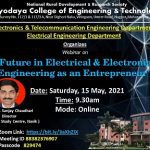 |
| |
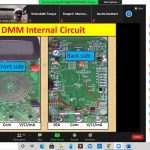 |
|
2
|
10TH May 2021
|
“Speak Up”, an Audio Recording Contest
|
ETC Students Forum [TEESA],Department of Electronics & Telecommunication
|
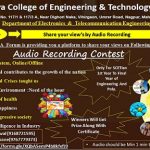 |
|
3
|
29th June 2020-3rd July 2020
|
Online Training programme conducted by Indian Institute of Remote Sensing, ISRO Dehradun
on “Satellite Photogrammetry and its Application”
|
Suryodaya College of Engineering & Technology, Nagpur
Coordinator:Mr Shailesh Birthariya
|
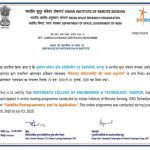 |
|
4
|
5th Sep 2020
|
Online Poster Competition is arranged on the Topic: “Invention & Innovation for AatmaNirbhar Bharat”.
|
Suryodaya College of Engineering & Technology,Nagpur
Coordinator:Mr Shailesh Birthariya
|
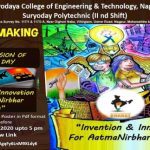 |
|
5
|
9th May 2020
|
Webinar on “Vital Skill for Employment”
|
Mr. Swaroop Gandewar,Founder GTGP,Business Coach
Coordinator:Mr Sumit Chafale
|
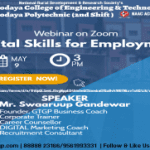 |
|
6
|
12th Feb 2020
|
Online Quiz competition conducted by Electronics & ICT Academy of Indian Institute of Technology (IIT), Kanpur
|
EICT Academy of Indian Institute of Technology (IIT), Kanpur
Coordinator:Mr Shailesh Birthariya
|
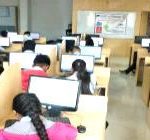 |
| |
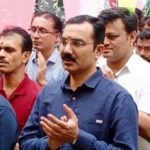 |
Student Achievement
|
1
|
13th July 2020
|
Making & Installing of working Model of “Automatic Hand Wash Machine” by ETC Dept. students at S.C.E.T Campus
|
Guest:
Mr Abhishek Belkhede( Director,SCET),Mrs Rasika Chafale(M.D. CSED),Dr. Vivek Parhate(Vice-Principal ,SCET),Prof.Amit Bankar (Head,TPO,SCET)
Students:
1. Sayyam Bhusari (B.E.8TH Sem)
2) Prajwal Kawale (B.E.8TH Sem)
3) Vinay Mahule (B.E.6TH Sem)
|
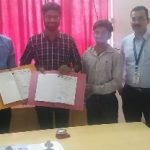 |
|
2
|
28th June 2020
|
Project Working Model “AUTOMATIC HANDWASH MACHINE” made for Covid 19 ( Installed at NMC Office Entrance )
|
1. Sayyam Bhusari (B.E.8TH Sem), 2) Prajwal Kawale (B.E.8TH Sem), 3) Vinay Mahule (B.E.6TH Sem)
|
Letter of Appriciation by Mayor Sandip Joshi,Nagpur Municipal
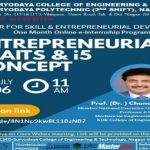
|
|
3
|
16th April 2020
|
Video making for awareness for Covid 19
|
Suhasini Patil (B.E. 8TH Sem)
|
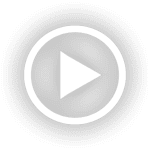
|
Other Achievements
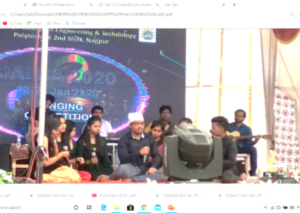
Winner Singing Group competition in “JALSA 2020”
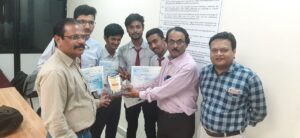
Winner in “AMPLIFIA 2k20” in Bread Board Competition held at KDK College of Engineering, Nagpur
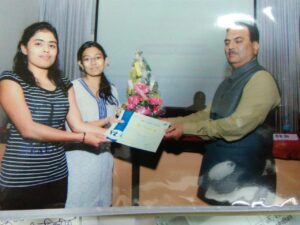
Second winner of 1 min Video Making competition in JAL JAGRUTI ABHIYAN organized by Water Resources Department (WRD), Nagpur
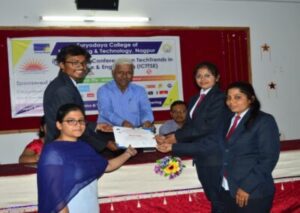
Consolation prize in Paper Presentation event for Electronics & Telecommunication Engineering Theme “International Conference On TechTrends In Science and Engineering (ICTTSE 2019)
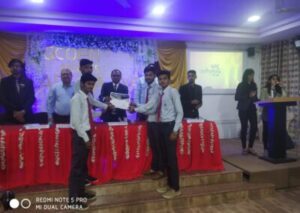
Second Prize winner on Ravic event, a circuit making competition conducted by Government college of Engineering, Nagpur
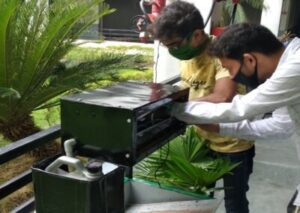
Making & Installing of working Model of “Automatic Hand Wash Machine” by ETC engineering students [Sayam Bhusari,Prajwal Kawale] at S.C.E.T Campus in Covid-19 pandemic
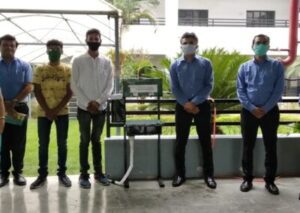
Hon’ Chief Minister’s appreciation
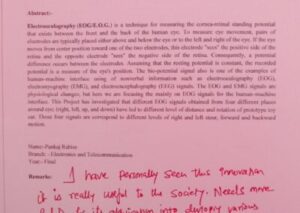
Appreciation Letter by Hon. Ex. Chief Minister
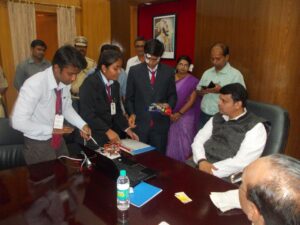
Project Demonstration to Hon. Ex. Chief Minister BY Pankaj Rahise,Shrushti Dixit,Saurabh Pokale
Academics
CHANDRASHEKHAR R. MANKAR
10th Rank Holder, R.T.M. Nagpur University Exam Summer 2019
Department of Electronics & Telecommunication Engineering
|
Sr.No.
|
Name of event
|
Speaker with designation
|
Topic
|
Date
|
No of students/ Staff present
|
|
1
|
Making & Installing of working Model of “Automatic Hand Wash Machine” by ETC Dept. students at S.C.E.T Campus
|
Mr. Sayam Bhusari,Mr. Prajwal Kawale ,Student ETC Dept,Batch:2019-20
|
Automatic Hand Wash Machine
|
13th July 2020
|
15
|
|
2
|
Online Quiz competition conducted by Electronics & ICT Academy of Indian Institute of Technology (IIT), Kanpur
|
ICT Academy of Indian Institute of Technology (IIT), Kanpur
|
“Programming Quiz on C & C++” under “Smart Hacks” Program
|
12th Feb 2020
|
180
|
|
3
|
AICTE –ISTE STTP program ON Machine Learning & Artificial Intelligence
|
Dr. Bharat Khushlani, Delhi,Dr Shital S. Chiddarwar, ME Dept, VNIT,Nagpur,Dr. Vijay Kale, VNIT Nagpur,Mr. Kunal Deep,CEO ,Edusaksham ,Banglore
|
Machine Learning & Artificial Intelligence
|
22nd April -26nd April 2019
|
110 (Staff)
|
|
4
|
Workshop on Learn the Science of Flying & Building Drones” in Association of Techfest IIT Bombay
|
Mr. Shrikant Shitre, Drone Instructor,Oyester,Mumbai
|
Learn the Science of Flying & Building Drones
|
14th Sep 2019
|
350
|
|
5
|
Paper Presentation event for Electronics & Telecommunication Engineering Theme “International Conference On TechTrends In Science and Engineering (ICTTSE 2019)”
|
Dr. Jagdish Kene,RKNEC,Nagpur
|
International Conference On TechTrends In Science and Engineering
|
7th March 2019
|
50
|
|
6
|
Technical Event ROBO SOCCER in TECHTRENDS 2019
|
ROBO SOCCER
|
|
8th March 2019
|
75
|
|
7
|
Global Entrepreneurship Summit at IIT, Kharagpur
|
Indian Institute of Technology, Kharagpur
|
Entrepreneurship Cell, IIT Kharagpur , Global Entrepreneurship Summit-2019
|
1st–3rd February 2019
|
35
|
|
8
|
Seminar on Massive Open Online Course Platform (MOOC) courses “SWAYAM” at Suryodaya College of Engineering & Technology ,Nagpur
|
Mr. Shailesh G. Birthariya
|
Seminar on Massive Open Online Course Platform (MOOC) courses “SWAYAM”
|
21st September 2019
|
150
|
|
9
|
TEESA ( A Student Forum) Installation Programme
|
Dr. Chandrakant Ragit
|
Student Forum Installation
|
17th Aug 2019
|
100
|
|
10
|
Online Quiz Competition on the theme “Technology Trend :Shaping Future Engineers” By Engineers Forum,Nagpur
|
Mr. Sumit Chafale
|
Quiz Competition
|
Monday, September 09, 2019
|
115
|
|
11
|
Abhiyan 2019 A Mega Events Science Quiz, Video Making Competition maximum 90 sec, MODEL EXHIBITION,Poster Competition,PRATIKRUTI-2019 for 10th,12th & Polytechnic student
|
Dr. Chandrakant Ragit
|
Science Quiz, Video Making Competition maximum 90 sec, MODEL EXHIBITION,Poster Competition,PRATIKRUTI-2019
|
Saturday,14th Dec 2019
|
650
|
|
12
|
Faculty Development Program DELLSOFT Technologies Pvt Ltd.on Circuit Simulation / PCB Design using Target 3001!
|
DELLSOFT Technologies Pvt Ltd
|
PCB Design using Target 3001!
|
27th Sept.2017
|
20 (Staff)
|
Photo Gallery
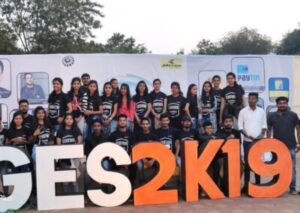
One day Workshop on Learn the Science of Flying & Building Drones” in Association of Techfest IIT Bombay3
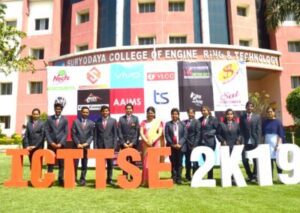
One day Workshop on Learn the Science of Flying & Building Drones” in Association of Techfest IIT Bombay3
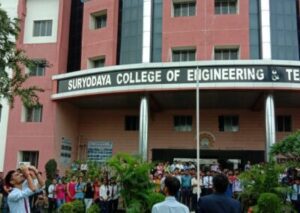
College Photo
TEESA Installation
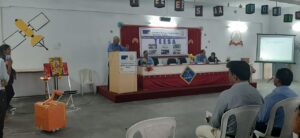
Hon’ Principal SCET addressing students
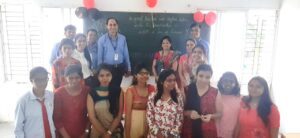
Teacher Day Celebration
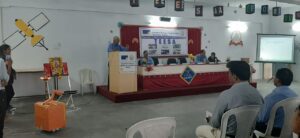
Hon’ HOd SCET addressing students
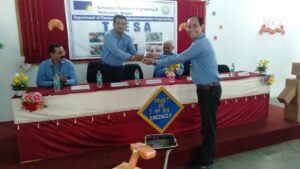
Welcoming Hon’ Ranjeet Chafle, Secretary, NRDRS & all dignitaries
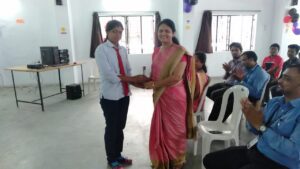
Badge distribution to Newly formed TESSA members
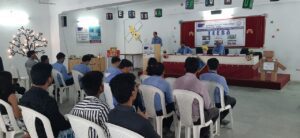
Introductory speech by HOD, ETC Department
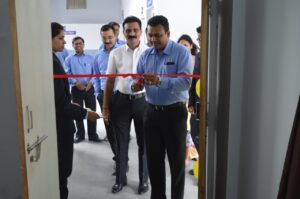
Inauguration of TEESA (A Student Forum) by hands of Hon. Ranjeet Chafle,Secretary,NRDRS
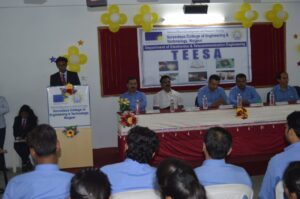
TESSA President briefing about the annual activity of TESSA FORUM
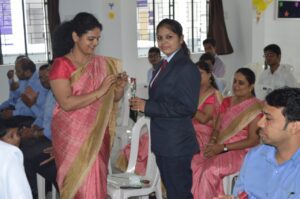
TESSA Committee Members Installation
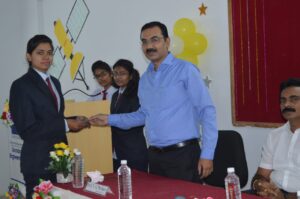
TESSA Committee Members Installation
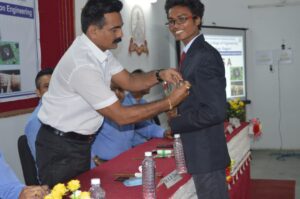
Badge distribution to Newly formed TESSA President
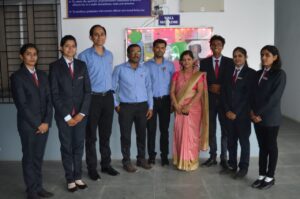
stallation of Digital Wall Magazine at ETC Department by students forum members
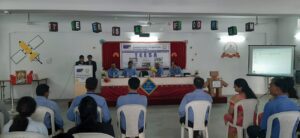
Inauguration Ceremony of TEESA Forum





